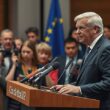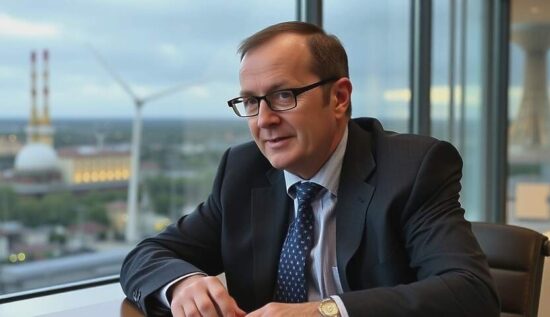Fears of Europe losing its competitive edge in the global market have been voiced by many observers, with China and the US leading in innovative fields like artificial intelligence. According to German CDU’s chancellor candidate Friedrich Merz, the German business model is at an end. In an interview with the British weekly magazine The Economist, Merz outlined his strategy, which begins with the fight against bureaucracy in Brussels and Germany. “We must seriously work on bureaucracy” he said, listing a range of regulations and directives, including detailed due diligence report standards, which German business leaders consider unworkable.
Merz also announced the reduction of the social system, stating, “We must concentrate our state expenditures on the labor market, not pay people who don’t want to work.” The CDU’s chancellor candidate emphasized the need to revive the long-missing German European policy, citing the strengthening of Europe’s voice as a key theme, ranging from China policy to supporting Emmanuel Macron’s ambition to strengthen the European defense industry. Merz promised to revive the “Weimar Triangle” with France and Poland and consider military cooperation and joint projects in the fields of AI and quantum computing.
Regarding energy, a major concern of the German industry, Merz stated, “We must build at least 50 gas power plants.” While a return to Russian gas is not currently on the table, he expressed openness to long-term contracts for expensive US liquefied natural gas. New nuclear power plants are also, in his opinion, thinkable.
The deployment of peacekeeping troops to Ukraine “could be an option” Merz said, but “only after a reliable ceasefire.” He also stated that a country at war is not a potential NATO member, citing Ukraine as an example. Merz added that it would be premature to consider the admission of a country that does not have full control over its territory – at least, as long as the US has not clarified its policy. The CDU’s chancellor candidate supports the US proposal to use frozen Russian assets to support Ukraine.
In regards to Donald Trump, Merz claimed that negotiations with him would be “very simple” as the US president pursues a transparent and transactional approach. Brussels should respond to the US’s announced tariffs on EU exports, such as in Trump’s first term in 2018, with a targeted reaction that is painful enough to calm the situation.
“If we get the economy and illegal migration under control, the AfD will shrink – ideally, so far that it’s no longer represented in parliament (below 5 percent of the votes)” Merz said, discussing the success of the AfD. If this does not happen, the future looks bleak. “It could be one of our last chances to solve the problems before the populists win the majority” warned the CDU’s chancellor candidate.





